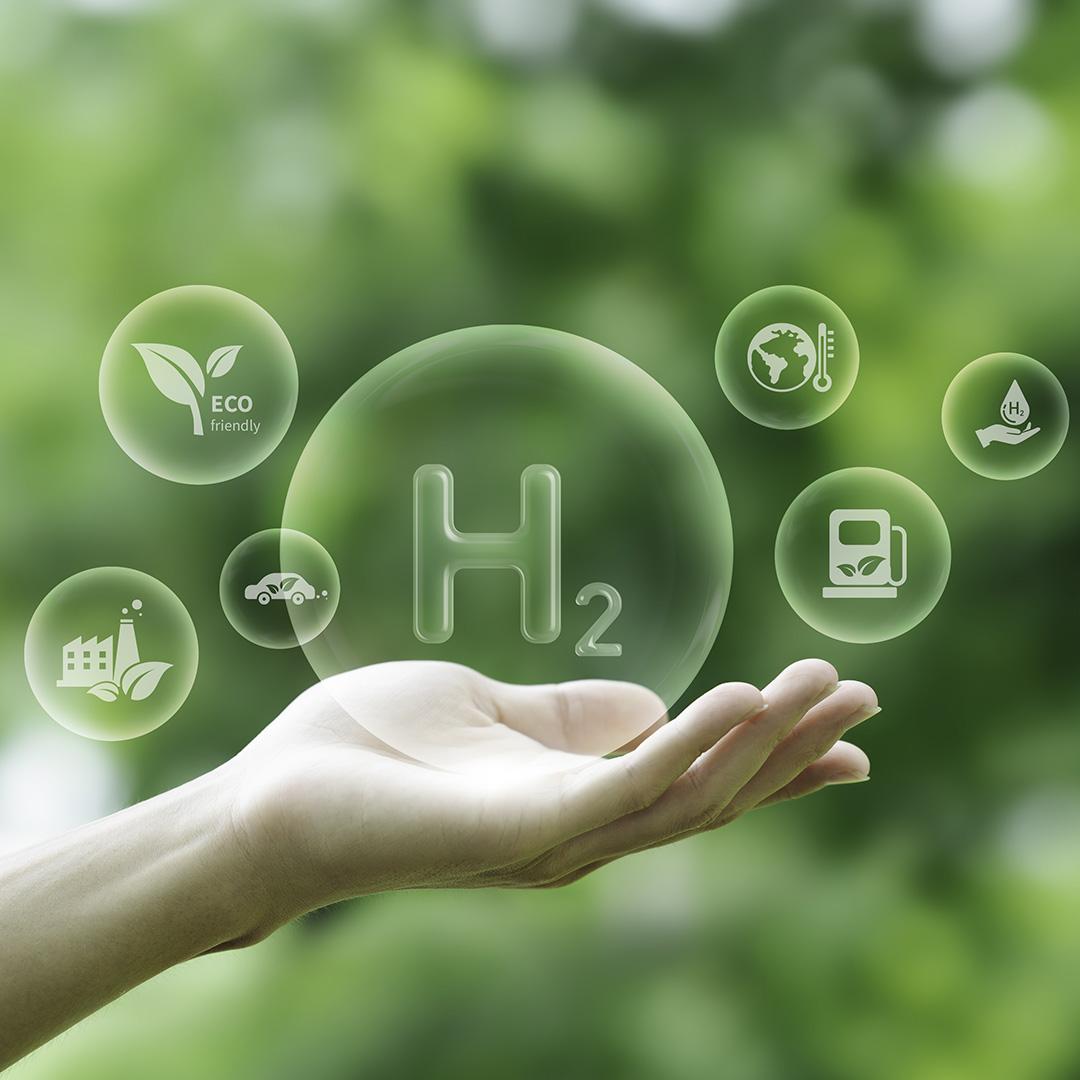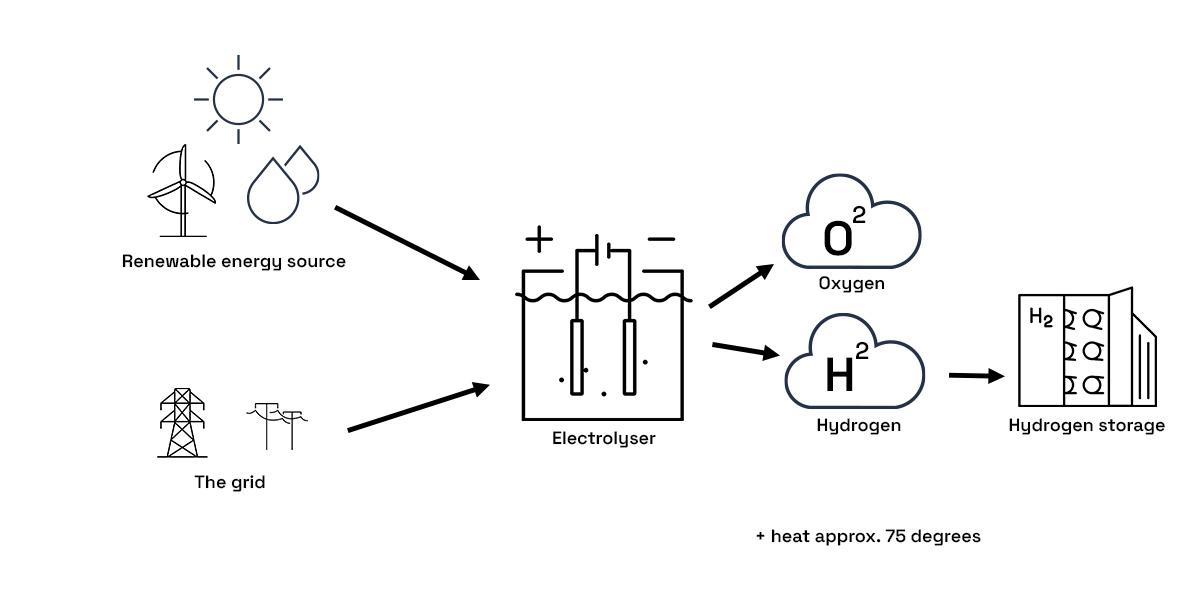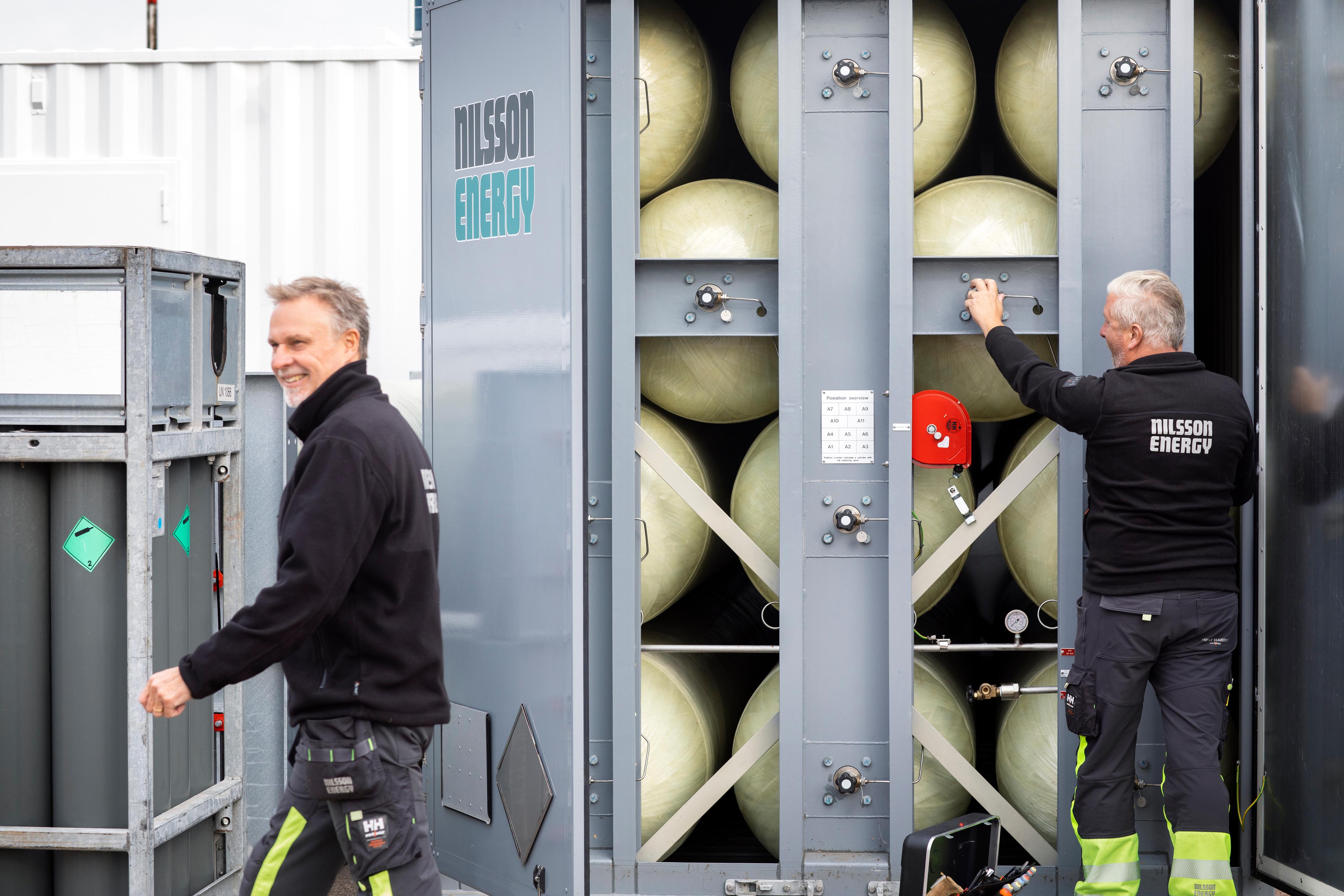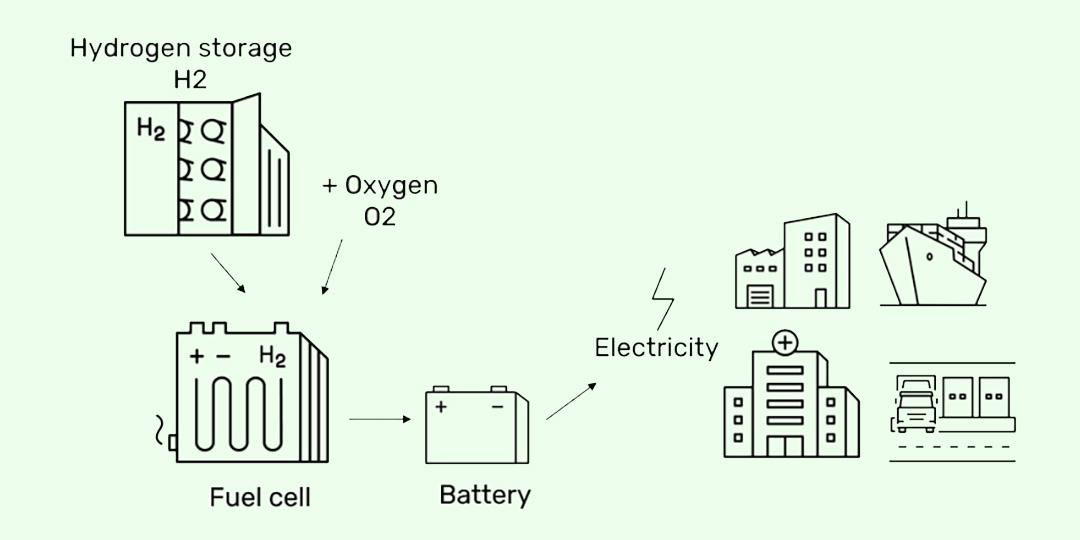About hydrogen
Facts
What is hydrogen?
Hydrogen is the lightest and most abundant element in the universe and has incredible potential as a clean and versatile energy source. With its high energy content and ability to produce only water as a by-product, hydrogen offers a promising solution to combat climate change and meet our growing energy needs. With hydrogen, you can store, transport and provide renewable energy from, for example, sun and wind.

Facts
How to produce hydrogen through electrolysis?
Nilsson Energy use an electrolysis process for producing hydrogen in our applications. The electrolysis process uses an electric current to split water molecules into hydrogen and oxygen. If the hydrogen isn't used at once the hydrogen is compressed and stored in specific containers until it is needed. During the electrolysis process, heat is generated as a byproduct and can be utilized for various purposes, such as heating water. This enhance the overall energy efficiency of the energy system. If renewable energy sources are used the hydrogen is classified as green hydrogen.

Facts
Hydrogen as energy carrier
Hydrogen is seen as an energy carrier and not as a primary energy source as it is mostly produced through processes that require energy/electricity. The function as an energy carrier means that it is possible to store energy in hydrogen gas to be used at a later time, like a battery or when you pump up stored water to a higher height to later be able to drive generators. In order to use the energy stored in hydrogen, it needs to be released, either with the help of a fuel cell or via combustion.

Facts
Electricity through a fuel cell
A fuel cell is powered by hydrogen and produces electricity. A fuel cell is basically a reverse electrolyser and the only by-product formed is water and heat. Water vapor is formed when the hydrogen gas reacts with the oxygen in the air flowing through the fuel cell. Fuel cells can be used both in stationary applications (eg in buildings or generators for reserve power) or in vehicles. This technology has great potential to contribute to sustainable energy solutions as you can go from green electricity, energy storage in the form of hydrogen and then back to electricity, without the inclusion of any fossil sources or emissions of greenhouse gases.

Facts
Areas of use for hydrogen
Hydrogen can be used for various purposes in society. Either by producing electricity via a fuel cell or as fuel for vehicles.Due to its versatility, hydrogen has great potential in various parts of society, above all in energy storage and fossil-free vehicle fuel. Both of these will be needed to balance intermittent energy sources and enable transportation without greenhouse gas emissions. Hydrogen is an energy carrier and can be used to store and transport renewable energy from, for example, sun and wind, until it is needed. By converting hydrogen via a fuel cell, you get electricity back. Hydrogen can also be used as fuel for vehicles or as an energy source in industrial processes. In addition to this, many industries also need hydrogen for various chemical processes, and hydrogen is also a component required to produce electrofuel10 (e-fuel). Due to its versatility, hydrogen has great potential in various parts of society, above all as an energy storage and fossil-free vehicle fuel. Both of these will be needed to balance intermittent energy sources and enable transportation without greenhouse gas emissions.

